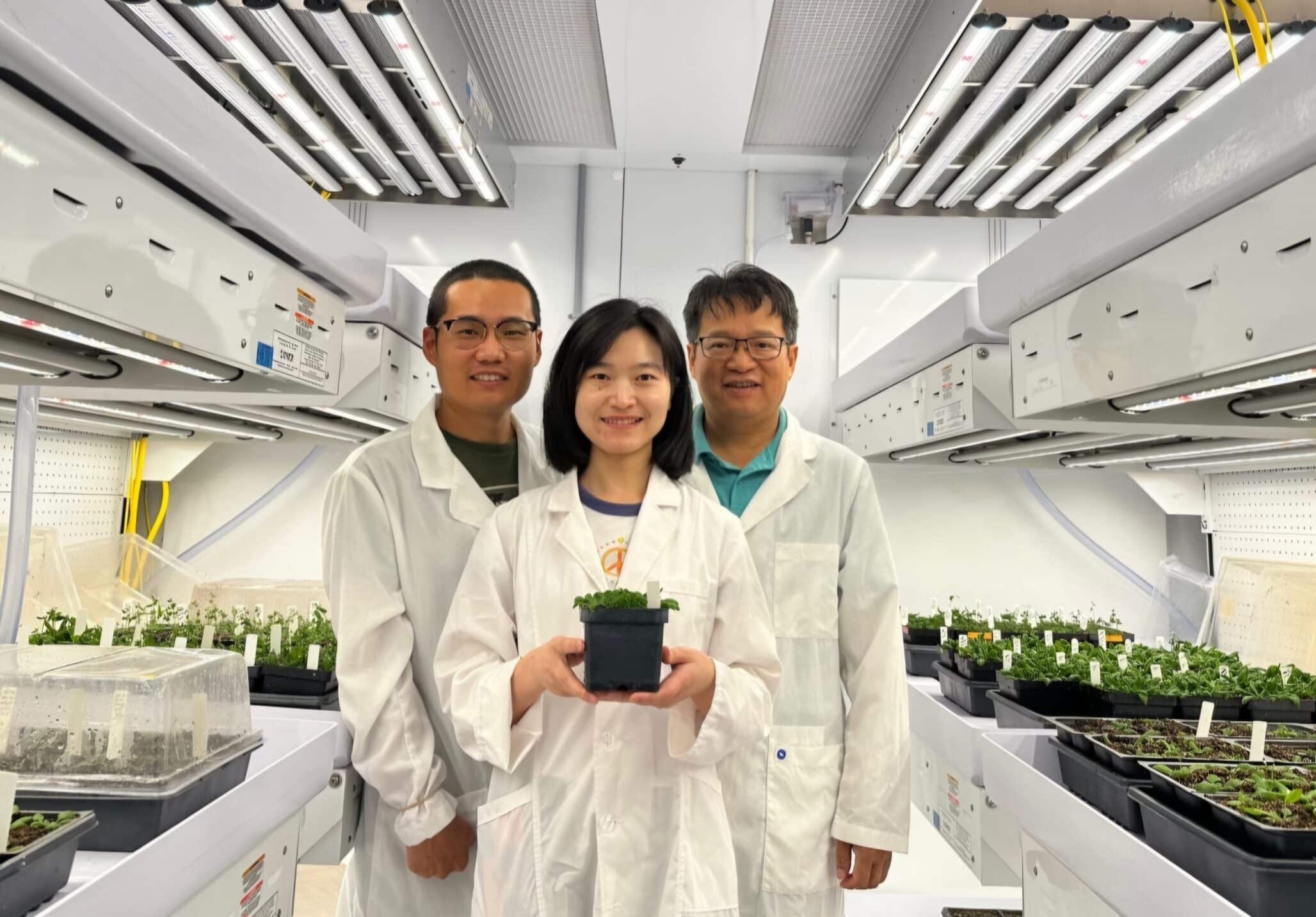Iowa State University agronomy and plant pathology researchers have narrowed the search for genes that help soybeans resist sudden death syndrome, a costly disease, pointing the way for crop breeders to develop more resilient and profitable soybean cultivars for farmers.
“There are various ways of controlling sudden death syndrome (SDS) on the farm level, but there’s nothing that beats a good breeding and genetics effort to develop soybean cultivars that have the innate capacity to withstand the disease,” said Asheesh Singh, Iowa State agronomy assistant professor, who was a co-leader on the research project.
Jiaoping Zhang, a post-doctoral research associate in the Department of Agronomy, was the lead author of a paper describing the study of soybean genes and their interactions, which was published in The Plant Journal. Besides Singh, other members of the research team were agronomist Arti Singh and plant pathologist Daren Mueller.
“Breeders seek single markers, but in this study we also investigated the interaction of single markers that contributed to the resistance,” Zhang said. “This paper gives suggestions to the breeder to consider interaction between markers that can be a new source of SDS resistance improvement in soybean.”
The researchers proposed the genetic pathway that soybeans use to resist SDS, he said. They mapped one gene encoding a protein that could play the role of sensor on the root cell surface to detect the attack of SDS pathogens and pass a signal to the cell interior to trigger resistance.
“It’s important for breeders to better understand the genetic basis when trying to develop soybeans with resistance,” Zhang said.
The research used the genome-wide association technique to identify SDS-resistance related DNA markers and epistatic studies that detect the possible effect of genes dependent on the presence of other genes. The research team is using the same techniques to find genes that help soybeans resist other diseases and pests, economically important to farmers in Iowa and nationally.
The Iowa Soybean Association and Iowa State’s Raymond F. Baker Center for Plant Breeding provided funds for the research.











